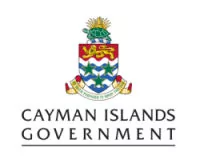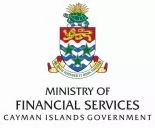Madam Speaker, and Honourable Members of the Legislative Assembly, I have the distinct pleasure today of announcing that the implementation stage of the National Conservation Law, 2013 (the NCL) has been formally initiated.
As Madam Speaker and Members of the Legislative Assembly will recall, on 13 December 2013 the NCL was passed in this Honourable House. Since that time, Government has been working and preparing the way for the commencement of this law.
Madam Speaker on Tuesday, 9 September – Cabinet approved the commencement of Parts 1 and 2, and also Schedule 2, of the NCL. The Commencement Order has been published and comes into effect today.
In short, Madam Speaker, by commencing these Parts and Schedule of the NCL, Government is taking the next steps in the preparatory work being done, which will allow the rest of the Law to be commenced as smoothly as possible.
Madam Speaker, Part 1 of the NCL provides definitions of the key terms and phrases that will be used to interpret the Law. Part 2 and Schedule 2 are administrative, and primarily establish the composition of the National Conservation Council and detail its role and functions. Commencing these two parts of the Law has enabled the Council to be formalised and will allow it to begin considering the specifics of how it will discharge its duties under the Law, particularly in respect of the procedures that will need to followed by entities consulting with the Council pursuant to section 41 (3) of the Law.
Another priority matter for the Council will be to produce, in consultation with the Department of Environment, the drafting instructions for the Regulations, which will govern the Environmental Impact Assessment process, as these Regulations will need to be ready to be passed by Cabinet concurrent with the full commencement of the Law. Whilst the Department of Environment has already developed fairly detailed drafting instructions for the EIA Regulations, the Council will need to have input before they are finalised. Madam Speaker, the EIA Regulations are the only Regulations that will need to be drafted after the Council has been appointed. The other Regulations which will have to be passed simultaneously with commencement of the full law have already been drafted and are ready to be considered by Cabinet once the full law is in effect.
These Regulations, the National Conservation (Species Conservation) Regulations simply preserve those species protection measures that were previously covered by either the Marine Conservation Law which will be repealed in its entirety once the NCL has been fully commenced or those specific sections of the Animals Law which have been repealed by the amendment to the Animals Law passed by this Honourable House at its last meeting. All other Regulations made under the Marine Conservation Law will be preserved and will carry forward as if they were Regulations made under the National Conservation Law in accordance with the transitional arrangements provided in Section 52 of the Law.
Madam Speaker, we expect the preparatory work of the Council to take a few months. Once it is complete, Government will be in a position to commence the remainder of the Law and bring it fully into effect. I anticipate this to be by the end of this calendar year.
Madam Speaker, in terms of the National Conservation Council, I am pleased to announce that the following appointments have also been made by Cabinet in accordance with Schedule 2 of the NCL and published today.
In terms of the District representatives we have Mr. Davey Ebanks representing West Bay, Ms. Lisa-Ann Hurlston-McKenzie representing George Town, Ms. Christine Rose-Smyth representing Bodden Town and appointed also as Chairperson of the Council, Mr. McFarlane Connolly representing East End, Mr. Brian Tomlinson representing North Side and Mr. Wallace Platts representing Cayman Brac and Little Cayman.
Madam Speaker the person nominated by the National Trust of the Cayman Islands and approved by Cabinet is Mrs Christina Pineda and the additional persons appointed to the Council are Mr. Fred Burton and Ms. Patricia Bradley.
The additional persons comprising the thirteen member Council are ex officio members.
I thank these members for agreeing to serve on this most important body and I wish them well in the important work they will be engaged in.
Thank you Madam Speaker.
The content of this article is intended to provide a general guide to the subject matter. Specialist advice should be sought about your specific circumstances.

